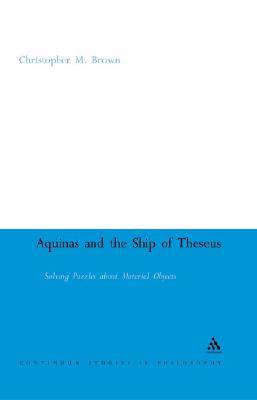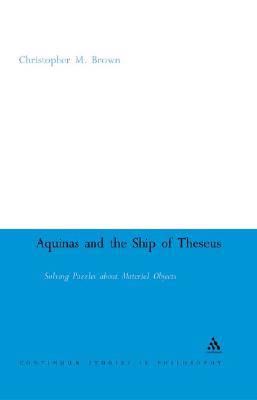
- Afhalen na 1 uur in een winkel met voorraad
- Gratis thuislevering in België vanaf € 30
- Ruim aanbod met 7 miljoen producten
- Afhalen na 1 uur in een winkel met voorraad
- Gratis thuislevering in België vanaf € 30
- Ruim aanbod met 7 miljoen producten
Zoeken
€ 415,95
+ 831 punten
Omschrijving
Thomas Aquinas has always been viewed as a highly important
figure in Western Civilization, and the chief philosopher of Roman
Catholicism. In recent decades there has been a renewed interest in
Aquinas' thought as scholars have been exploring the relevance of his
thought to contemporary philosophical problems.
The book will be of interest not only to historians of medieval
philosophy, but to philosophers who work on problems associated with
the nature of material objects. Because human beings are typically
understood to be a kind of material object, the book will also be of
interest to philosophers working on topics in the philosophy of religion,
philosophy of mind, and the philosophy of human nature. Although the
work contains the kinds of details that are necessary for a work of historical scholarship, it is written in a
manner that makes it approachable for undergraduate students in philosophy and so it would be a
welcomed addition to any university library.
figure in Western Civilization, and the chief philosopher of Roman
Catholicism. In recent decades there has been a renewed interest in
Aquinas' thought as scholars have been exploring the relevance of his
thought to contemporary philosophical problems.
The book will be of interest not only to historians of medieval
philosophy, but to philosophers who work on problems associated with
the nature of material objects. Because human beings are typically
understood to be a kind of material object, the book will also be of
interest to philosophers working on topics in the philosophy of religion,
philosophy of mind, and the philosophy of human nature. Although the
work contains the kinds of details that are necessary for a work of historical scholarship, it is written in a
manner that makes it approachable for undergraduate students in philosophy and so it would be a
welcomed addition to any university library.
Specificaties
Betrokkenen
- Auteur(s):
- Uitgeverij:
Inhoud
- Aantal bladzijden:
- 208
- Taal:
- Engels
- Reeks:
- Reeksnummer:
- nr. 10
Eigenschappen
- Productcode (EAN):
- 9780826478283
- Verschijningsdatum:
- 30/05/2005
- Uitvoering:
- Hardcover
- Formaat:
- Genaaid
- Afmetingen:
- 156 mm x 242 mm
- Gewicht:
- 453 g

Alleen bij Standaard Boekhandel
+ 831 punten op je klantenkaart van Standaard Boekhandel
Beoordelingen
We publiceren alleen reviews die voldoen aan de voorwaarden voor reviews. Bekijk onze voorwaarden voor reviews.







